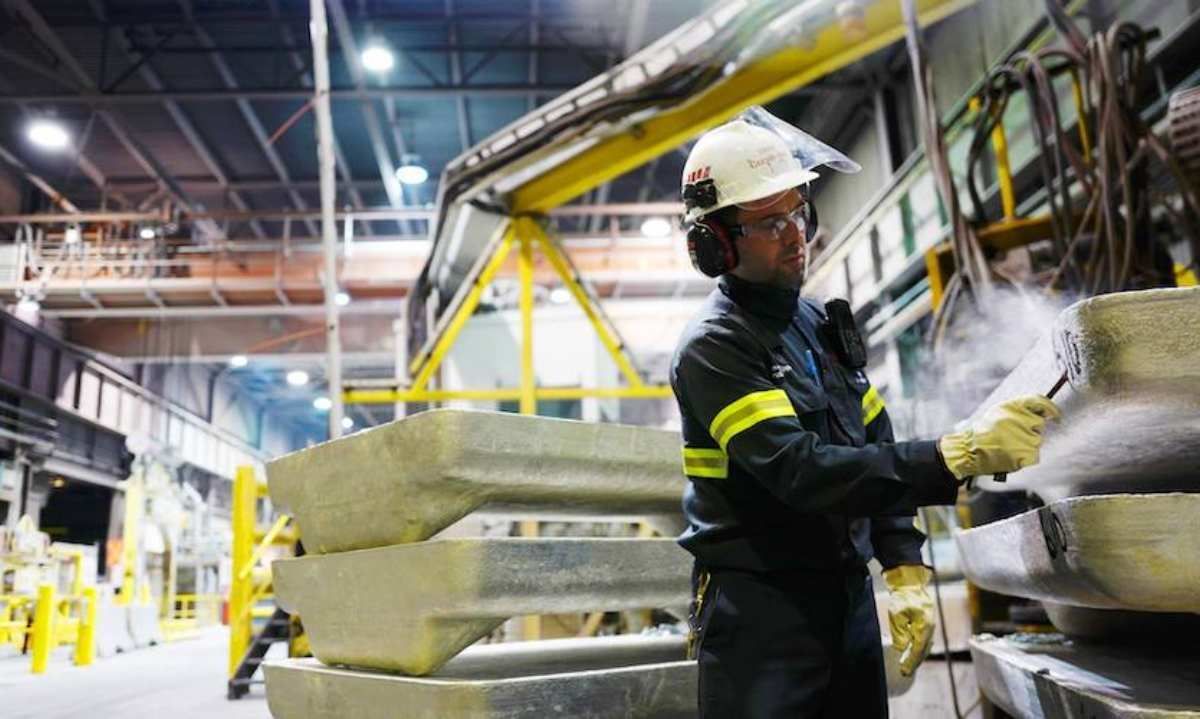
As Glencore continues to navigate the complex landscape of M&A opportunities, its strategic focus remains on delivering long-term value to shareholders while addressing operational and cultural challenges in potential deals.
Miner and commodity trader Glencore has reaffirmed its openness to mergers and acquisitions (M&A) that enhance shareholder value, leveraging its standing as one of the world's top three copper producers.
Glencore's Strategic Approach to M&A
"As we have always said, M&A is something we are good at and we are always open to transactions that are value-accretive for the company," a Glencore spokesperson stated.
Investor focus on potential M&A deals surged in 2024, but the failure of BHP's $49 billion bid for Anglo American in May highlighted the challenges in consolidating diversified mining companies. Glencore had previously approached Rio Tinto with a merger proposal, but discussions did not advance, according to sources close to the matter. Neither company has officially commented on the negotiations.
Challenges in a Potential Rio Tinto Merger
While a merger could expand Rio Tinto's copper production, concerns persist regarding cultural compatibility and financial implications. "Glencore is a trader... their operating assets primarily serve as a material source for trading. The culture clash would be significant, but any deal can be done at the right price," said Abel Martins Alexandre, a former Rio Tinto treasurer and ex-managing director at Lloyds Bank.
If Glencore were to acquire Rio Tinto's portfolio, it might capitalize more effectively on trading opportunities than Rio Tinto, which does not focus on trading.
Copper Demand and Market Dynamics
Mining firms are racing to increase copper output as demand grows for applications in renewable energy, electric vehicles, and AI data centers. However, major producers remain cautious about paying excessive premiums that could strain their financial standing and upset shareholders.
Currently, Glencore produces over one million metric tons of copper annually, surpassing Rio Tinto's output by up to 40%. Despite this, analysts consider Glencore undervalued compared to competitors. In 2024, Glencore's share price declined by 25%, while BHP and Rio Tinto's London stocks fell by 21% and 19%, respectively, and Anglo American's shares rose by 20%.
Coal Operations as a Potential Deal Breaker
Glencore's extensive coal operations pose another challenge in potential mergers. "Glencore's coal assets are seen as a 'poison pill' for other companies' shareholders," Martins Alexandre noted. Unlike most Western miners that have divested from coal, Glencore has expanded its holdings in recent years.
Future M&A Prospects and Cash Deals
Reports indicate that Glencore explored a merger with Anglo American after BHP's approach surfaced, but no official statement has been made. In 2023, Glencore's failed $23 billion bid for Teck Resources resulted in the acquisition of 77% of the steelmaking coal assets that Teck had planned to spin off.
Teck, now primarily a copper miner with a market capitalization of $22 billion, would be significantly more expensive if pursued today.
According to sources, Glencore remains hopeful for renewed discussions with Rio Tinto. The company's M&A strategy has increasingly leaned on cash transactions, reflecting management's view that Glencore's stock is undervalued, as highlighted by RBC Capital Markets analyst Ben Davis.
Some institutional investors favor the idea of larger miners acquiring companies like Glencore or Anglo American at a premium above 30%, citing potential synergies such as shared infrastructure and cost efficiencies. However, other shareholders remain skeptical of large-scale M&A in the mining sector, with industry executives cautious about overextending due to portfolio imperfections.




